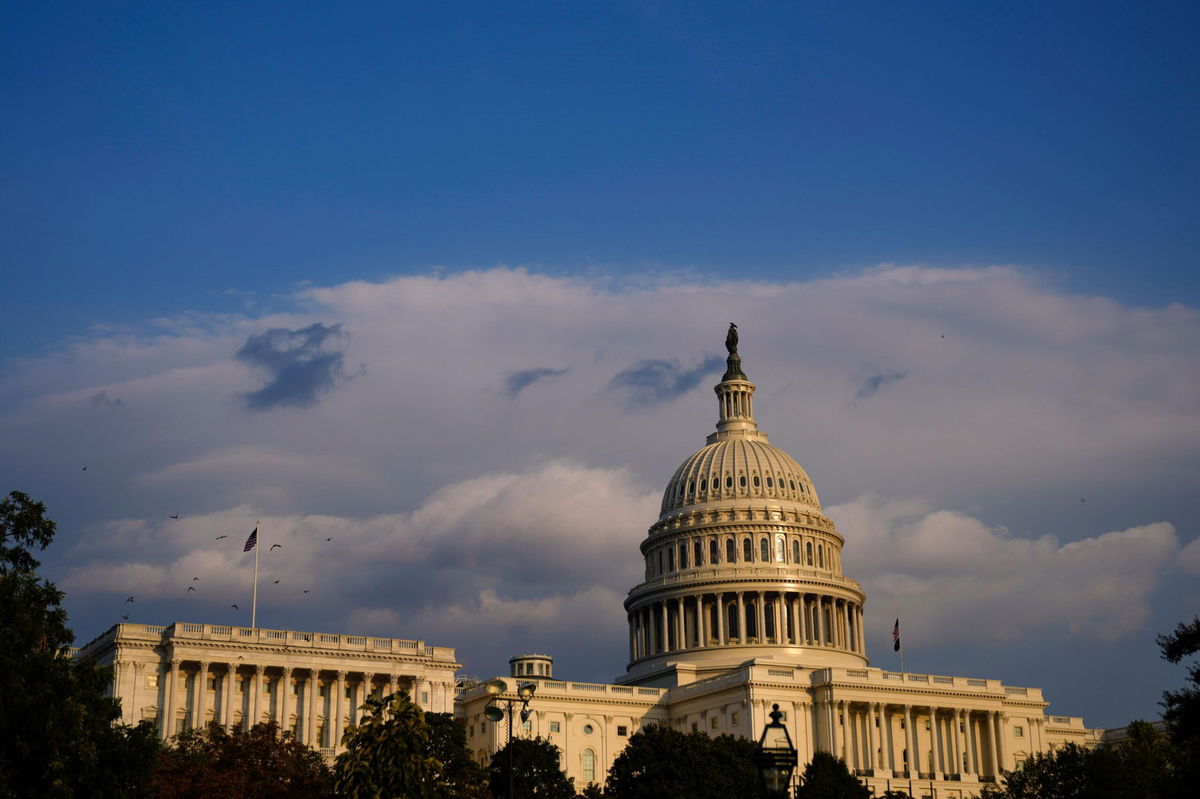This week in Washington is all about the debt ceiling

Congress has two weeks to increase the country's borrowing limit or the repercussions for the nation's financial market.
By Lauren Fox, CNN
Congress avoided a government shutdown and Democrats may have been forced to punt on their infrastructure and social safety net agenda in an eventful last week on Capitol Hill.
But to some extent those agenda items pale in comparison to the magnitude of the item Congress needs to begin dealing with this week: The debt ceiling.
The bottom line is that Congress has two weeks to increase the country’s borrowing limit or the repercussions for the nation’s financial market, and the economy at-large, are dire. Congress is playing with fire, as most members and aides who handle this on a day-to-day basis acknowledge privately. The closer the country gets to the October 18 deadline, the less time there will be to back out of a corner and right now neither side is close to blinking.
President Joe Biden speaks at 11:15 am ET on Monday, which may provide a clearer glimpse of where things are going next on the debt ceiling. And Senate votes on Monday night will be a chance to gauge just how nervous Democrats and Republicans are getting about this standoff figured out.
Game of chicken
Republicans’ position remains that this is a process that Democrats can handle on their own and that they don’t need GOP help. The Senate parliamentarian reiterated that last week (we will get to that in a minute).
After several votes, Senate Minority Leader Mitch McConnell has stood firm and there is absolutely no indication that his promise not to lend the votes will bend. It’s also worth remembering that even Republicans who have close relationships with Democrats and have been known to cross the aisle on major bipartisan votes aren’t budging. Remember Sen. Mitt Romney of Utah here. The Republican has said there is no way he is voting to increase the debt ceiling when Democrats have all the levers of government. He means it. The GOP votes do not exist.
Both House Speaker Nancy Pelosi and Senate Majority Leader Chuck Schumer, however, have said they don’t want to do this on their own using a special budget process known as reconciliation. Schumer has been steadfast about this and Pelosi made it clear during her press conference last week that she shares that position. That leaves little option for a path forward and with just two weeks to go until the deadline, Democrats would have to back off of this ledge soon if they are going to have enough time to use reconciliation.
This is not the united Democratic position
It’s worth noting that there are beginning to be some cracks in the Democratic messaging on the debt ceiling.
Sen. Tim Kaine, a Virginia Democrat, told CNN last week that while he believes Republicans should vote to increase the debt ceiling with Democrats, it is the Democratic Party that holds all the levers of government.
“If they are not going to help us, we’ve got to do it. We have the majority,” Kaine said.
Sen. Dick Durbin, the No. 2 Senate Democrat, also notably told CNN’s Dana Bash on “State of the Union” on Sunday that the Senate is “gonna get this done.”
How exactly? They are running out of options.
The logistics
If Republicans won’t give Democrats the votes on the debt ceiling, then Democrats really have one other option. They can increase the debt ceiling using the special budget process known as reconciliation. Last week, Republican and Democratic staff talked once again with the Senate parliamentarian to get guidance on how the debt ceiling could be raised using that process. The parliamentarian made it clear it could be done, but it would require a bit of time.
How it would work
- Democrats would have to begin a reconciliation process to raise the debt ceiling
- A vote-a-rama would get the process started and another one would end the process. That’s two more opportunities for Republicans to launch all-night vote marathons.
- Most aides and members have acknowledged this process could take about two weeks and given where we are in the calendar, that means Democrats need to make a decision soon if they are going to use this. So far, leadership advising this isn’t likely, even though most folks watching this closely don’t see another option.
Both sides acknowledge that it can happen, but if Democrats’ reluctance to use reconciliation has been real. And that is because in part they believe it is Republicans’ responsibility to help pay down debts that were incurred together and because raising the debt limit through reconciliation requires Democrats to vote for exactly how much they want to raise it by. That is an incredibly tough vote for Democrats running for reelection.
A quick note about infrastructure
After Friday’s missed deadline, the pressure valve has been released. Work is going to continue, but Democrats are going to have to spend the next several weeks really doing the hard work of figuring out where every member stands on a host of thorny issues from tax policy to prescription drugs.
That work hadn’t been entirely sorted out before Democratic leaders in the House made their big push to get their bills on the floor. Now, everyone is going to take time to make sure the differences are ironed out, which means this may fade into the background for awhile. It is going to take time.
The-CNN-Wire
™ & © 2021 Cable News Network, Inc., a WarnerMedia Company. All rights reserved.